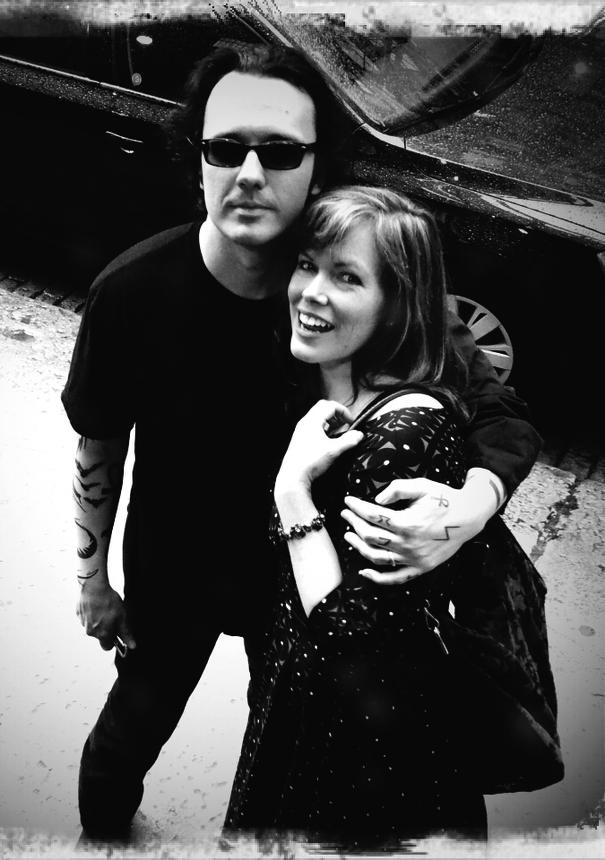Yours for Eternity: A Love Story on Death Row
Damien Echols and Lorri Davis
From one of the greatest legal injustices of our time sprang one of the most unlikely—and unforgettable—love stories. For anyone who followed the case of the ‘West Memphis Three’, or read Damien Echols’s memoir, Life After Death, there is one lingering question: Who was the woman—courageous, affected, or just plain crazy enough—to fall in love and marry him while he was on death row?
Lorri Davis was a landscape architect living in New York City when she saw Paradise Lost, a documentary about the three young men imprisoned in Arkansas for an unspeakable crime they didn’t commit. When her first letter arrived in Echols’s cell in 1996, hers were some of the first kind words of support he had heard.
Over the course of a remarkable sixteen-year correspondence, Echols and Davis grew to know each other, fall in love, and marry—all without ever being able to touch each other freely or be alone together. In Yours for Eternity, they describe also how they overcame the enormous challenges and heartbreaks throughout the years—personal setbacks, legal complications, and much more. Astoundingly, thousands of their personal letters have survived, to create a singular portrait of their marriage told in alternating voices by Echols and Davis both.
Yours for Eternity reveals a relationship unfolding in the most exceptional of circumstances. Powerful, unique, and incredibly intimate, it is a modern-day love story for the ages.
andYours for Eternity
‘Damien Echols suffered a shocking miscarriage of justice. A nightmare few could endure. An innocent man on death row for more than eighteen years, abused by the very system we all fund. His story will appal, fascinate, and render you feeble with tears and laughter. A brilliant memoir to battle with literary giants of the calibre of Jean Genet, Gregory David Roberts, and Dostoevsky.’
‘This is a stunning piece of work. Such hope while faced with injustice. Damien teaches us how to live.’
‘Wrongfully imprisoned by willfully ignorant cops, prosecutors and judge, Damien Echols draws on all his wits and his unique view of humanity to survive eighteen years on death row. My admiration for him, and the strength of his spirit, increases with every page.’
‘The life of Damien Echols is a journey similar to that of the metal that becomes a samurai’s sword. Heated and pounded until it becomes hardened, it can hold its edge for centuries. It is incredible that Damien endured and survived one of the most tragic miscarriages of American justice, and emerged such a centered, articulate and extraordinary man and writer. Life After Death proves that he paid dearly for his wisdom.’
‘Even for this remarkable young man, every day was a struggle, and his survival, his sanity, is won on every page. This is a deeply moving book, almost Dickensian in its moral scope: religion, hypocrisy, evil in office, with virtue and good fellowship finally triumphant. And no irony.’
‘Exceptional memoir by the most famous of the West Memphis Three … bare facts alone would make for an interesting story. However, Echols is at heart a poet and mystic, and he has written not just a quickie one-off book to capitalize on a lurid news story, but rather a work of art that occasionally bears a resemblance to the work of Jean Genet. A voracious reader all his life, Echols vividly tells his story, from his impoverished childhood in a series of shacks and mobile homes to his emergence after half a lifetime behind bars as a psychically scarred man rediscovering freedom in New York City. The author also effectively displays his intelligence and sensitivity, qualities the Arkansas criminal justice system had no interest in recognizing during Echols’ ordeal. Essential reading.’
‘This memoir is about as far away from a publicity-seeking I-was-wronged story as possible. The author opts for a meatier, and certainly more haunting, account of his life behind bars, coupled with flashbacks to his childhood … it achieves the kind of emotional resonance that many similar books lack. A tragic and often disturbing story.’
‘Echols’ memoir isn’t only a story of justice delayed; it’s also a tale of romance, resilience, and the power of the written word.’







